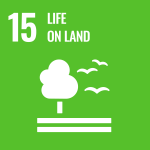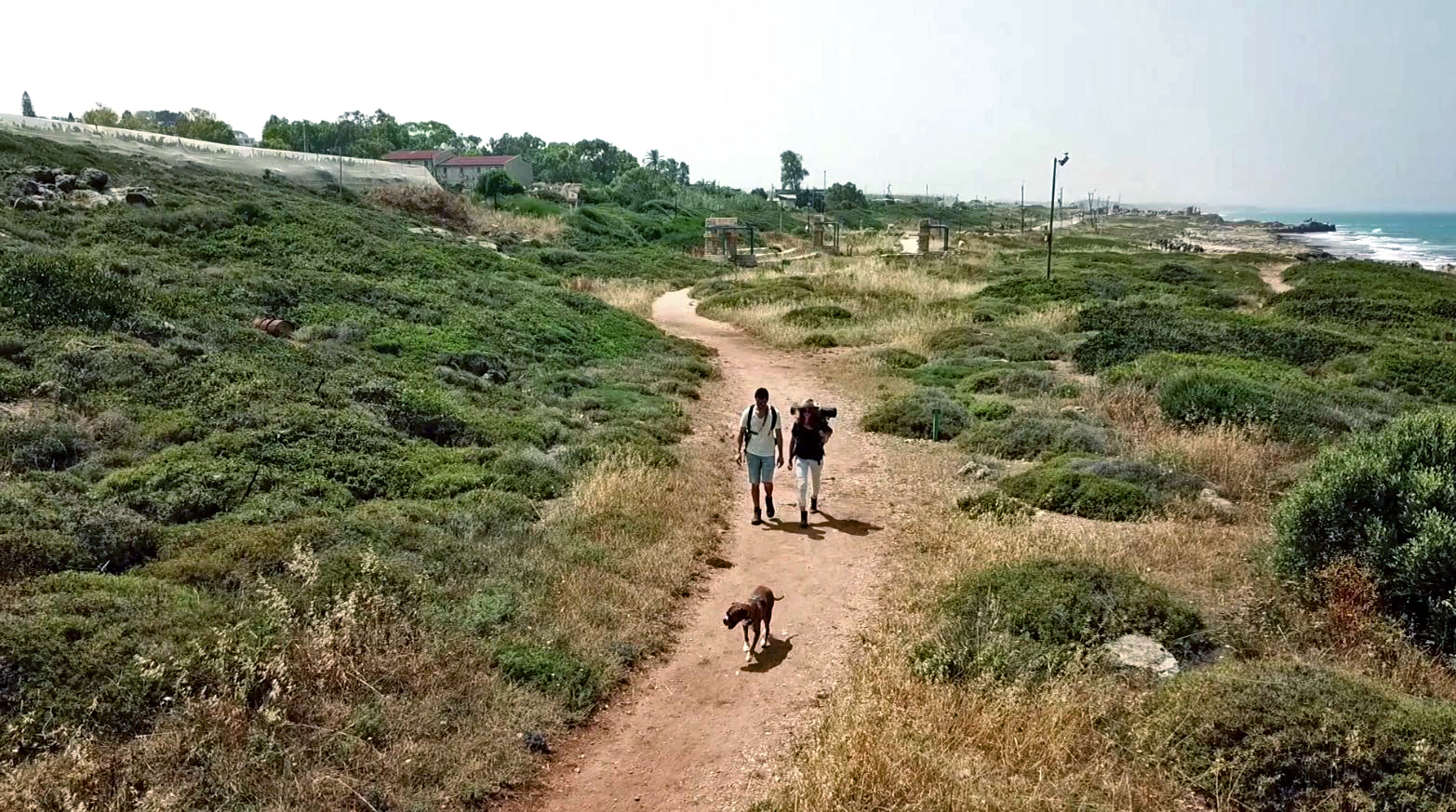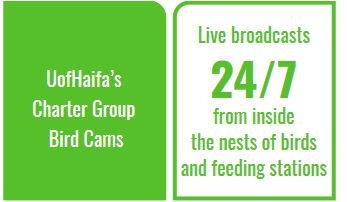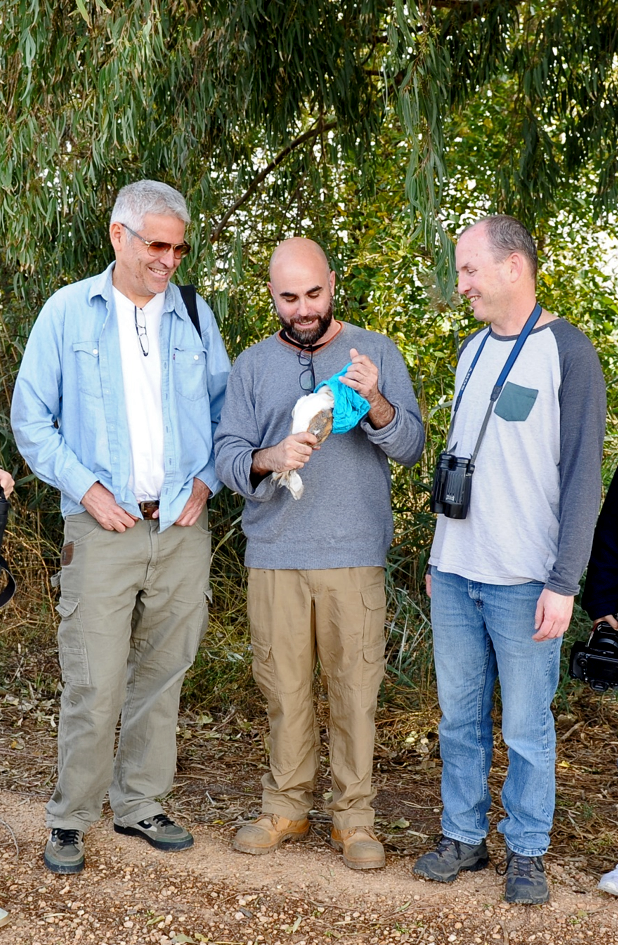 Goal 15: Life on Land
Goal 15: Life on Land
PROTECT, RESTORE AND PROMOTE SUSTAINABLE USE OF TERRESTRIAL ECOSYSTEMS, SUSTAINABLY MANAGE FORESTS, COMBAT DESERTIFICATION, AND HALT AND REVERSE LAND DEGRADATION AND HALT BIODIVERSITY LOSS
Research
Future of Our Coastal Cities
Dr. David Friesem’s BEFOREtheFLOOD is funded by European Research Commission (ERC). The project applies high-tech archaeological field techniques to investigate the responses of Neolithic coastal settlements to environmental challenges. The results have tremendous potential to critically impact the current-day responses coastal communities are having to rising sea levels.

Farmers Motivations to engage in Sustainable Practices
Considering the impacts agricultural practices are having on the natural environment, a comprehensive understanding of needs and motivations of farmers is critical in bringing about effective behavioral changes, while encouraging use of more environmentally friendly agricultural practices. Dr. Keren Kaplan-Mintz and Prof. Ofira Ayalon are examining the origins of the psychological, economic, and social outlooks and practices of orchard farmers in the Golan Heights to determine their potential willingness to employ sustainable practices.

Plant and Animal Reciprocal Relations
Professor Moshe Inbar from the Department of Evolutionary and Environmental Biology teaches a course on the Reciprocal Relations of Animals and Plants. The course examines the relationship between animals, especially insects, and their host plants. Reviewing a variety of animal-plant host interactions, such as pollination, seed scattering and carnivorous plants, students learn about plants as heterogeneous sources of food for animals, defense mechanisms of plants, and modifications that allow animals to eat plants.
Mosquitos: Mitigating Vector-Borne Diseases
Mosquitoes remain the primary cause of vector-borne diseases worldwide, and knowledge about their behavior and distribution may prove vital for population control. Various species of mosquitoes respond to chemical cues indicating the presence of predators, especially larvivores fish, during adult oviposition and larval foraging. In the UofH’s Mosquito-Behavior Lab, researchers recently isolated fish-symbiotic bacteria, that produces volatiles that affect mosquito oviposition, habitat selection and larval behavior and development.
Public Engagement
Coastal Trail
Shvil HaYam is a new National Hiking Trail extending 240 KM along the Mediterranean Coast, from Rosh Hanikra in the north all the way down to Zikim in the south. Initiated by a team of researchers led by Prof. Noga Collins-Kreiner of the School of Environmental Sciences in 2022, the Ministry of Environmental Protection inaugurated the trail this year. Furthermore, Dr. Collins-Kreiner’s proposed course on the Coastal Trail is among the winners of the Division of Innovation and Sustainability RFP for new courses in sustainability.
Preventing Bird-Aircraft Collisions

The Israeli Air Force (IAF) encounters great flocks of large-sized, migrating birds, with hundreds of collisions occurring each year. Last year, the IAF spent 4.5 million NIS to repair and replace bird-damaged engines. The Animal Flight Lab at UofH is headed by Prof. Nir Sapir who is collecting data to accurately predict bird migration. The model is being shared with northern European nations who face similar challenges with geese frequently colliding with aircrafts.
AI for Community Science Biodiversity Monitoring
With the recent ecological crisis and the mass extinction of species, ecologists are trying to develop novel approaches for estimating species populations. Inspired by recent advancements in Artificial Intelligence (AI) and the success of crowdsourcing initiatives, AI for Citizen Science Biodiversity Monitoring (AI4Biodiversity) is a project at UofH Data Science Research Center (DSRC) where researchers are collaborating with Israel’s Nature and Parks Authority to apply innovative methods for estimating hyena populations.
Learning & Students
Examining Human-Ecosystem Relationship
The Ecology and Space MA seminar is taught by Prof. Dan Malkinson from the School of Environmental Sciences. Its aim it to train students to execute scientific research that relates to interactions between man and ecosystems, examining impact on processes and functioning of natural, agricultural, and urban ecosystems.
Operations
Road to the Millenia
Envisioned by the late Dr. Reuben Hecht, after whom the UofH Hecht Museum is named, Road to the Millenia is a pathway of reconstructed buildings that represent different periods in the history of Palestine. The goal of the project is to locate and salvage the remains of ancient buildings across the country that are slated for destruction and then relocated them to designated reconstruction areas along campus paths.


